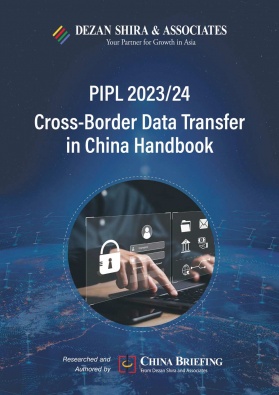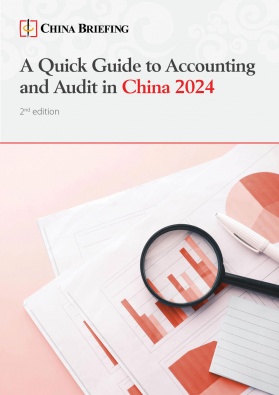China Expands Market Access in Cross-Border Services with Release of New Negative Lists
China’s commerce regulator has released two new negative lists outlining services that overseas companies are prohibited or restricted from selling to China. The negative lists provide clarity for companies in a previously ambiguously regulated space, thus facilitating market participation and ensuring consistent implementation of the rules. At the same time, the lists relax restrictions in certain fields and lay the groundwork for future market access expansion in China’s cross-border services trade.
China’s Ministry of Commerce (MOFCOM) has released the country’s first-ever negative lists for China’s cross-border services trade, providing foreign companies with long-awaited clarity on which services can be sold to China.
The two negative lists, one applicable nationwide (the “national negative list”) and one applicable in China’s free trade zones (the “FTZ negative list”), stipulate the services that overseas companies are restricted from selling within China.
These lists are not the same as the Negative List for Foreign Investment or the Negative List for Market Access, which restrict the industries that foreign companies (and private domestic companies in the case of the latter list) can invest in within China.
According to an explainer from MOFCOM, China previously implemented a so-called “positive list” system for China’s cross-border services trade. Under this system, overseas companies were permitted to sell certain services to China under various trade agreements with other countries. Services that were not included in these lists were regulated across different pieces of legislation, creating a somewhat confusing and inconsistent system.
While the new negative lists stipulate the fields that are restricted from participation by overseas companies, they are widely seen as a market access expansion, as they give the green light to companies to operate in all service fields not placed on the lists. This will also prevent local authorities from arbitrarily blocking the sale of services that are not included in the negative lists, a situation that has previously occurred where rules on market access were vague.
The cross-border service negative lists are significant not only because they remove ambiguity for overseas companies, but also because they form part of a new system governing China’s cross-border services trade that clears the path to further market opening in the future – what MOFCOM calls a “tiered opening system (梯度开放体系)”.
Which services are on the negative lists?
MOFCOM’s definition of “cross-border service trade” encompasses three types of cross-border activity: cross-border delivery, overseas consumption, and movement of natural persons. This definition aligns with the WTO’s General Agreement on Trade in Services.
Both the national and the FTZ negative lists include services across 11 major industries: agriculture, forestry, animal husbandry, and fishery; construction; wholesale and retail; transportation, warehousing, and postal services; information transmission, software, and IT services; financial services; leasing and business services; scientific research and technical services; education, healthcare, and social work; and culture, sports, and entertainment. The national negative list contains 71 items, while the FTZ negative list contains 68.
In some instances, overseas companies are completely prohibited from participating in the field, while in others they are restricted to providing the services through certain sales channels or mechanisms (such as through a domestic wholesaler) or without certain permissions or licensing.
In the national negative lists, for instance, overseas companies are:
- Prohibited from providing all construction and related engineering services;
- Restricted from the direct sale of products such as veterinary medicine, animal feed, animal feed additives, and fertilizers (companies must establish a sales company in China or entrust a domestic sales company to provide these goods in China);
- Restricted from engaging in telecom operations without establishing an entity in China or without a permit to carry out telecom operations; and
- Restricted from engaging in banking organizations, asset management companies, credit companies, trust companies, financial affairs companies, leasing companies, consumer finance companies, auto finance companies, currency brokerages and other types of business activities by established financial organizations through cross-border transactions without the approval of the China Banking and Insurance Regulatory Commission (CBIRC).
The negative lists do not supersede preferential treatment given to trade in services stipulated in international free trade agreements or preferential treatment provided for certain fields within FTZs. If a country has a bilateral agreement with China that allows companies from that country to engage in one of the services included in the negative lists, then the terms of that agreement will prevail.
Market expansion in the FTZs
Perhaps more significant than the services included on the negative lists are the ones that were not included. The FTZ negative lists in particular expand the number of fields that are open to foreign participation by eliminating or easing restrictions on certain services from previous regulations.
First, the FTZ negative list adopts a more open talent policy by removing restrictions on overseas individuals taking exams for six types of professional qualifications. These are qualifications for urban and rural planners, real estate appraisers, auctioneers, registered survey and design engineers, veterinarians, and registered supervision engineers. According to MOFCOM, this will help to encourage and attract more overseas professionals to work and start businesses in China and further enhance the internationalization of the FTZs.
The FTZ negative list also expands access to various financial service fields. For instance, qualified overseas individuals are now allowed to apply to open securities and futures accounts. In addition, the FTZ negative list also removes restrictions on overseas businesses and individuals engaging in customs declaration services in China. This means that overseas service providers will be able to provide customs declaration services to entities in the FTZs through cross-border means without having to establish a legal entity in China.
Finally, the FTZ negative list decreases the minimum number of Chinese staff that must be hired to produce a TV program produced jointly by a domestic and foreign company.
The list states that overseas service providers may not engage in the production of TV programs, but that with approval, a domestic TV production company can cooperate with a foreign company and individuals to create a TV program (including animated TV shows). The main creative personnel involved in the production (screenwriters, producers, directors, and main actors) must consist of at least 25 percent Chinese staff – a reduction from the one-third previously required. Hiring foreign personnel must be approved by the National Radio and Television Administration (NRTA).
Hainan FTZ negative list for cross-border services
While the national and FTZ negative lists are the first national-level service trade negative lists that have been implemented, it is not the first time China has trialed this type of system.
In July 2021, the Hainan Free Trade Port (FTP) released a local negative list for the cross-border sale of services. According to MOFCOM, the implementation of this list has been a success in boosting foreign participation in fields such as finance, transportation, legal services, and professional qualifications.
Many of the new relaxations in the two new negative lists were already implemented through Hainan’s negative list, such as allowing foreigners to open securities accounts and take exams for specialist qualifications. In addition, Hainan has allowed yachts from overseas to freely enter and exit Hainan ports without requiring pilotage from China’s pilotage agency. Meanwhile. Hainanese law firms have hired foreign lawyers as legal consultants to provide foreign legal consulting services.
According to statistics from the Hainan statistics bureau, the implementation of the list has contributed to an increase in the import and export of services in Hainan, which increased by 29.6 percent year-on-year in 2023.
About Us
China Briefing is one of five regional Asia Briefing publications, supported by Dezan Shira & Associates. For a complimentary subscription to China Briefing’s content products, please click here.
Dezan Shira & Associates assists foreign investors into China and has done so since 1992 through offices in Beijing, Tianjin, Dalian, Qingdao, Shanghai, Hangzhou, Ningbo, Suzhou, Guangzhou, Dongguan, Haikou, Zhongshan, Shenzhen, and Hong Kong. We also have offices in Vietnam, Indonesia, Singapore, United States, Germany, Italy, India, and Dubai (UAE) and partner firms assisting foreign investors in The Philippines, Malaysia, Thailand, Bangladesh, and Australia. For assistance in China, please contact the firm at china@dezshira.com or visit our website at www.dezshira.com.
- Previous Article China Unveils New Guidelines on Optimized Payment Services for Foreigners: An Overview
- Next Article China Monthly Tax Brief: March 2024








